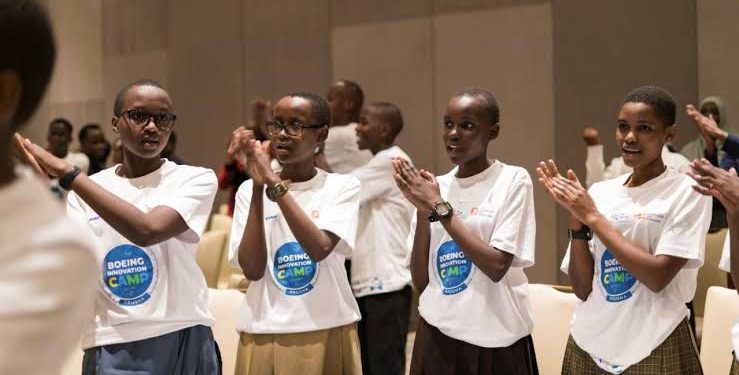Junior Achievement Africa and aerospace giant Boeing are rolling out two transformative programmes in Nigeria and Togo aimed at equipping young people with vital skills in STEM and entrepreneurship. The initiative seeks to boost innovation, sustainability, and economic growth across Africa’s burgeoning youth population.
In Nigeria, 500 secondary school girls have joined the ‘Girls STEMpreneurship’ programme, where they will participate in innovation camps and receive mentorship to build skills relevant to science, technology, engineering, and math. Top-performing teams will also be awarded seed funding to turn their business ideas into reality.
Meanwhile, in Togo, 600 senior secondary school students will participate in JA Africa’s ‘Company Programme,’ which teaches students how to create and manage startups. The curriculum includes practical training in market research, financial management, and leadership, with an emphasis on solving environmental challenges through innovation.
The programmes will also feature local and regional events where students will pitch their ideas, with Boeing employees serving as mentors and judges. These initiatives are part of Boeing’s wider commitment to scale talent development and women empowerment efforts in Africa.
President of Boeing Middle East, Türkiye, Africa, and Central Asia, Kuljit Ghata-Aura, noted that their ongoing partnership with JA Africa has already impacted over 5,000 young people across the continent. He expressed confidence that the new programmes in Nigeria and Togo would create meaningful opportunities for the next generation.
JA Africa President and CEO, Simi Nwogugu, described the partnership as a reflection of shared faith in African youth potential. She said Boeing’s continued support validates JA’s education model and reinforces its role as a leading provider of entrepreneurship and STEM education on the continent.
Since 2021, JA Africa and Boeing have collaborated to deliver entrepreneurship and sustainability programmes in over ten African countries, including Ghana, Madagascar, Sudan, Tanzania, and Uganda. Many programme alumni have gone on to establish their own businesses, becoming job creators in their communities.
With Africa housing the world’s fastest-growing youth population, these initiatives aim to empower young people not just to imagine the future, but to actively shape it.










